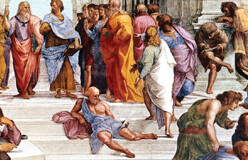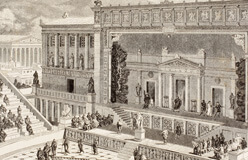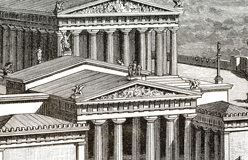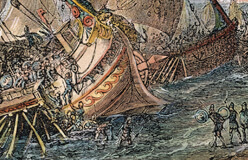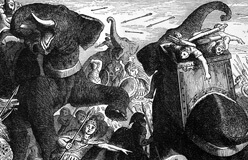Before the Persian Wars, Athens had a leader named Cleisthenes. He believed regular citizens should have a say in how government works.
Before him, only the wealthy, the nobility, and kings had a say. Around 508 BCE, he began making changes that led to an early form of democracy. Every adult male citizen was allowed to vote on laws. Ordinary people could hold public office. Citizens met to discuss the city’s business in an assembly, and taking part was viewed as a duty.
The system Cleisthenes created is called a direct democracy. In this system, all members of the assembly had an equal vote. A council would suggest a law, and people in the assembly would make speeches for and against the law. Then they would vote yes or no by a show of hands. If voters didn’t agree with a law, they could veto, or reject, it.
